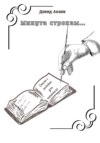Читать книгу: «Pelham — Complete»
VOLUME I
CHAPTER I
Ou peut-on etre mieux qu’au sein de sa famille?
—French Song.
[Where can on be better than in the bosom of one’s family?]
I am an only child. My father was the younger son of one of our oldest earls; my mother the dowerless daughter of a Scotch peer. Mr. Pelham was a moderate whig, and gave sumptuous dinners; Lady Frances was a woman of taste, and particularly fond of diamonds and old china.
Vulgar people know nothing of the necessaries required in good society, and the credit they give is as short as their pedigree. Six years after my birth, there was an execution in our house. My mother was just setting off on a visit to the Duchess of D_____; she declared it was impossible to go without her diamonds. The chief of the bailiffs declared it was impossible to trust them out of his sight. The matter was compromised—the bailiff went with my mother to C___, and was introduced as my tutor. “A man of singular merit,” whispered my mother, “but so shy!” Fortunately, the bailiff was abashed, and by losing his impudence he kept the secret. At the end of the week, the diamonds went to the jeweller’s, and Lady Frances wore paste.
I think it was about a month afterwards that a sixteenth cousin left my mother twenty thousand pounds. “It will just pay off our most importunate creditors, and equip me for Melton,” said Mr. Pelham.
“It will just redeem my diamonds, and refurnish the house,” said Lady Frances.
The latter alternative was chosen. My father went down to run his last horse at Newmarket, and my mother received nine hundred people in a Turkish tent. Both were equally fortunate, the Greek and the Turk; my father’s horse lost, in consequence of which he pocketed five thousand pounds; and my mother looked so charming as a Sultana, that Seymour Conway fell desperately in love with her.
Mr. Conway had just caused two divorces; and of course, all the women in London were dying for him—judge then of the pride which Lady Frances felt at his addresses. The end of the season was unusually dull, and my mother, after having looked over her list of engagements, and ascertained that she had none remaining worth staying for, agreed to elope with her new lover.
The carriage was at the end of the square. My mother, for the first time in her life, got up at six o’clock. Her foot was on the step, and her hand next to Mr. Conway’s heart, when she remembered that her favourite china monster and her French dog were left behind. She insisted on returning—re-entered the house, and was coming down stairs with one under each arm, when she was met by my father and two servants. My father’s valet had discovered the flight (I forget how), and awakened his master.
When my father was convinced of his loss, he called for his dressing-gown—searched the garret and the kitchen—looked in the maid’s drawers and the cellaret—and finally declared he was distracted. I have heard that the servants were quite melted by his grief, and I do not doubt it in the least, for he was always celebrated for his skill in private theatricals. He was just retiring to vent his grief in his dressing-room, when he met my mother. It must altogether have been an awkward rencontre, and, indeed, for my father, a remarkably unfortunate occurrence; for Seymour Conway was immensely rich, and the damages would, no doubt, have been proportionably high. Had they met each other alone, the affair might easily have been settled, and Lady Frances gone off in tranquillity;—those d—d servants are always in the way!
I have, however, often thought that it was better for me that the affair ended thus,—as I know, from many instances, that it is frequently exceedingly inconvenient to have one’s mother divorced.
I have observed that the distinguishing trait of people accustomed to good society, is a calm, imperturbable quiet, which pervades all their actions and habits, from the greatest to the least: they eat in quiet, move in quiet, live in quiet, and lose their wife, or even their money, in quiet; while low persons cannot take up either a spoon or an affront without making such an amazing noise about it. To render this observation good, and to return to the intended elopement, nothing farther was said upon that event. My father introduced Conway to Brookes’s, and invited him to dinner twice a week for a whole twelvemonth.
Not long after this occurrence, by the death of my grandfather, my uncle succeeded to the title and estates of the family. He was, as people justly observed, rather an odd man: built schools for peasants, forgave poachers, and diminished his farmers’ rents; indeed, on account of these and similar eccentricities, he was thought a fool by some, and a madman by others. However, he was not quite destitute of natural feeling; for he paid my father’s debts, and established us in the secure enjoyment of our former splendour. But this piece of generosity, or justice, was done in the most unhandsome manner; he obtained a promise from my father to retire from Brookes’s, and relinquish the turf; and he prevailed upon my mother to take an aversion to diamonds, and an indifference to china monsters.
CHAPTER II
Tell arts they have no soundness,
But vary by esteeming;
Tell schools they want profoundness,
And stand too much on seeming.
If arts and schools reply,
Give arts and schools the lie.
—The Soul’s Errand.
At ten years old I went to Eton. I had been educated till that period by my mother, who, being distantly related to Lord ———, (who had published “Hints upon the Culinary Art”), imagined she possessed an hereditary claim to literary distinction. History was her great forte; for she had read all the historical romances of the day, and history accordingly I had been carefully taught.
I think at this moment I see my mother before me, reclining on her sofa, and repeating to me some story about Queen Elizabeth and Lord Essex; then telling me, in a languid voice, as she sank back with the exertion, of the blessings of a literary taste, and admonishing me never to read above half an hour at a time for fear of losing my health.
Well, to Eton I went; and the second day I had been there, I was half killed for refusing, with all the pride of a Pelham, to wash tea-cups. I was rescued from the clutches of my tyrant by a boy not much bigger than myself, but reckoned the best fighter, for his size, in the whole school. His name was Reginald Glanville: from that period, we became inseparable, and our friendship lasted all the time he stayed at Eton, which was within a year of my own departure for Cambridge.
His father was a baronet, of a very ancient and wealthy family; and his mother was a woman of some talent and more ambition. She made her house one of the most recherchee in London. Seldom seen at large assemblies, she was eagerly sought after in the well winnowed soirees of the elect. Her wealth, great as it was, seemed the least prominent ingredient of her establishment. There was in it no uncalled for ostentation—no purse-proud vulgarity—no cringing to great, and no patronizing condescension to little people; even the Sunday newspapers could not find fault with her, and the querulous wives of younger brothers could only sneer and be silent.
“It is an excellent connexion,” said my mother, when I told her of my friendship with Reginald Glanville, “and will be of more use to you than many of greater apparent consequence. Remember, my dear, that in all the friends you make at present, you look to the advantage you can derive from them hereafter; that is what we call knowledge of the world, and it is to get the knowledge of the world that you are sent to a public school.”
I think, however, to my shame, that notwithstanding my mother’s instructions, very few prudential considerations were mingled with my friendship for Reginald Glanville. I loved him with a warmth of attachment, which has since surprised even myself.
He was of a very singular character: he used to wander by the river in the bright days of summer, when all else were at play, without any companion but his own thoughts; and these were tinged, even at that early age, with a deep and impassioned melancholy. He was so reserved in his manner, that it was looked upon as coldness or pride, and was repaid as such by a pretty general dislike. Yet to those he loved, no one could be more open and warm; more watchful to gratify others, more indifferent to gratification for himself: an utter absence of all selfishness, and an eager and active benevolence were indeed the distinguishing traits of his character. I have seen him endure with a careless goodnature the most provoking affronts from boys much less than himself; but directly I, or any other of his immediate friends, was injured or aggrieved, his anger was almost implacable. Although he was of a slight frame, yet early exercise had brought strength to his muscles, and activity to his limbs; and his skill in all athletic exercises whenever (which was but rarely) he deigned to share them, gave alike confidence and success to whatever enterprise his lion-like courage tempted him to dare.
Such, briefly and imperfectly sketched, was the character of Reginald Glanville—the one, who of all my early companions differed the most from myself; yet the one whom I loved the most, and the one whose future destiny was the most intertwined with my own.
I was in the head class when I left Eton. As I was reckoned an uncommonly well-educated boy, it may not be ungratifying to the admirers of the present system of education to pause here for a moment, and recal what I then knew. I could make twenty Latin verses in half an hour; I could construe, without an English translation, all the easy Latin authors, and many of the difficult ones, with it: I could read Greek fluently, and even translate it though the medium of a Latin version at the bottom of the page. I was thought exceedingly clever, for I had only been eight years acquiring all this fund of information, which, as one can never recal it in the world, you have every right to suppose that I had entirely forgotten before I was five and twenty. As I was never taught a syllable of English during this period; as when I once attempted to read Pope’s poems, out of school hours, I was laughed at, and called “a sap;” as my mother, when I went to school, renounced her own instructions; and as, whatever school-masters may think to the contrary, one learns nothing now-a-days by inspiration: so of everything which relates to English literature, English laws, and English history (with the exception of the said story of Queen Elizabeth and Lord Essex,) you have the same right to suppose that I was, at the age of eighteen, when I left Eton, in the profoundest ignorance.
At this age, I was transplanted to Cambridge, where I bloomed for two years in the blue and silver of a fellow commoner of Trinity. At the end of that time (being of royal descent) I became entitled to an honorary degree. I suppose the term is in contradistinction to an honourable degree, which is obtained by pale men in spectacles and cotton stockings, after thirty-six months of intense application.
I do not exactly remember how I spent my time at Cambridge. I had a piano-forte in my room, and a private billiard-room at a village two miles off; and between these resources, I managed to improve my mind more than could reasonably have been expected. To say truth, the whole place reeked with vulgarity. The men drank beer by the gallon, and eat cheese by the hundred weight—wore jockey-cut coats, and talked slang—rode for wagers, and swore when they lost—smoked in your face, and expectorated on the floor. Their proudest glory was to drive the mail—their mightiest exploit to box with the coachman—their most delicate amour to leer at the barmaid.
It will be believed, that I felt little regret in quitting companions of this description. I went to take leave of our college tutor. “Mr. Pelham,” said he, affectionately squeezing me by the hand, “your conduct has been most exemplary; you have not walked wantonly over the college grassplats, nor set your dog at the proctor—nor driven tandems by day, nor broken lamps by night—nor entered the chapel in order to display your intoxication—nor the lecture-room, in order to caricature the professors. This is the general behaviour of young men of family and fortune; but it has not been your’s. Sir, you have been an honour to your college.”
Thus closed my academical career. He who does not allow that it passed creditably to my teachers, profitably to myself, and beneficially to the world, is a narrow-minded and illiterate man, who knows nothing of the advantages of modern education.
CHAPTER III
Thus does a false ambition rule us,
Thus pomp delude, and folly fool us.
—Shenstone.
An open house, haunted with great resort.
—Bishop Hall’s Satires.
I left Cambridge in a very weak state of health; and as nobody had yet come to London, I accepted the invitation of Sir Lionel Garrett to pay him a visit at his country seat. Accordingly, one raw winter’s day, full of the hopes of the reviving influence of air and exercise, I found myself carefully packed up in three great coats, and on the high road to Garrett Park.
Sir Lionel Garrett was a character very common in England, and, in describing him, I describe the whole species. He was of an ancient family, and his ancestors had for centuries resided on their estates in Norfolk. Sir Lionel, who came to his majority and his fortune at the same time, went up to London at the age of twenty-one, a raw, uncouth sort of young man, in a green coat and lank hair. His friends in town were of that set whose members are above ton, whenever they do not grasp at its possession, but who, whenever they do, lose at once their aim and their equilibrium, and fall immeasurably below it. I mean that set which I call “the respectable,” consisting of old peers of an old school; country gentlemen, who still disdain not to love their wine and to hate the French; generals who have served in the army; elder brothers who succeed to something besides a mortgage; and younger brothers who do not mistake their capital for their income. To this set you may add the whole of the baronetage—for I have remarked that baronets hang together like bees or Scotchmen; and if I go to a baronet’s house, and speak to some one whom I have not the happiness to know, I always say “Sir John—.”
It was no wonder, then, that to this set belonged Sir Lionel Garrett—no more the youth in a green coat and lank hair, but pinched in, and curled out—abounding in horses and whiskers—dancing all night—lounging all day—the favourite of the old ladies, the Philander of the young.
One unfortunate evening Sir Lionel Garrett was introduced to the celebrated Duchess of D. From that moment his head was turned. Before then, he had always imagined that he was somebody—that he was Sir Lionel Garrett, with a good-looking person and eight thousand a-year; he now knew that he was nobody unless he went to Lady G.‘s and unless he bowed to Lady S. Disdaining all importance derived from himself, it became absolutely necessary to his happiness, that all his importance should be derived solely from his acquaintance with others. He cared not a straw that he was a man of fortune, of family, of consequence; he must be a man of ton; or he was an atom, a nonentity, a very worm, and no man. No lawyer at Gray’s Inn, no galley slave at the oar, ever worked so hard at his task as Sir Lionel Garrett at his. Ton, to a single man, is a thing attainable enough. Sir Lionel was just gaining the envied distinction, when he saw, courted, and married Lady Harriett Woodstock.
His new wife was of a modern and not very rich family, and striving like Sir Lionel for the notoriety of fashion; but of this struggle he was ignorant. He saw her admitted into good society—he imagined she commanded it; she was a hanger on—he believed she was a leader. Lady Harriett was crafty and twenty-four—had no objection to be married, nor to change the name of Woodstock for Garrett. She kept up the baronet’s mistake till it was too late to repair it.
Marriage did not bring Sir Lionel wisdom. His wife was of the same turn of mind as himself: they might have been great people in the country—they preferred being little people in town. They might have chosen friends among persons of respectability and rank—they preferred being chosen as acquaintance by persons of ton. Society was their being’s end and aim, and the only thing which brought them pleasure was the pain of attaining it. Did I not say truly that I would describe individuals of a common species? Is there one who reads this, who does not recognize that overflowing class of the English population, whose members would conceive it an insult to be thought of sufficient rank to be respectable for what they are?—who take it as an honour that they are made by their acquaintance?—who renounce the ease of living for themselves, for the trouble of living for persons who care not a pin for their existence—who are wretched if they are not dictated to by others—and who toil, groan, travail, through the whole course of life, in order to forfeit their independence?
I arrived at Garrett Park just time enough to dress for dinner. As I was descending the stairs after having performed that ceremony, I heard my own name pronounced by a very soft, lisping voice, “Henry Pelham! dear, what a pretty name. Is he handsome?”
“Rather distingue than handsome,” was the unsatisfactory reply, couched in a slow, pompous accent, which I immediately recognized to belong to Lady Harriett Garrett.
“Can we make something of him?” resumed the first voice.
“Something!” said Lady Harriett, indignantly; “he will be Lord Glenmorris! and he is son to Lady Frances Pelham.”
“Ah,” said the lisper, carelessly; “but can he write poetry, and play proverbes?”
“No, Lady Harriett,” said I, advancing; “but permit me, through you, to assure Lady Nelthorpe that he can admire those who do.”
“So you know me then?” said the lisper: “I see we shall be excellent friends;” and disengaging herself from Lady Harriett, she took my arm, and began discussing persons and things, poetry and china, French plays and music, till I found myself beside her at dinner, and most assiduously endeavouring to silence her by the superior engrossments of a bechamelle de poisson.
I took the opportunity of the pause, to survey the little circle of which Lady Harriett was the centre. In the first place, there was Mr. Davison, a great political economist, a short, dark, corpulent gentleman, with a quiet, serene, sleepy countenance, which put me exceedingly in mind of my grandmother’s arm-chair; beside him was a quick, sharp little woman, all sparkle and bustle, glancing a small, grey, prying eye round the table, with a most restless activity: this, as Lady Nelthorpe afterwards informed me, was a Miss Trafford, an excellent person for a Christmas in the country, whom every body was dying to have: she was an admirable mimic, an admirable actress, and an admirable reciter; made poetry and shoes, and told fortunes by the cards, which came actually true.
There was also Mr. Wormwood, the noli-me-tangere of literary lions—an author who sowed his conversation not with flowers but thorns. Nobody could accuse him of the flattery generally imputed to his species; through the course of a long and varied life, he had never once been known to say a civil thing. He was too much disliked not to be recherche; whatever is once notorious, even for being disagreeable, is sure to be courted in England. Opposite to him sat the really clever, and affectedly pedantic Lord Vincent, one of those persons who have been “promising young men” all their lives; who are found till four o’clock in the afternoon in a dressing-gown, with a quarto before them; who go down into the country for six weeks every session, to cram an impromptu reply; and who always have a work in the press which is never to be published.
Lady Nelthorpe herself I had frequently seen. She had some reputation for talent, was exceedingly affected, wrote poetry in albums, ridiculed her husband, who was a fox hunter, and had a great penchant pour les beaux arts et les beaux hommes.
There were four or five others of the unknown vulgar, younger brothers, who were good shots and bad matches; elderly ladies, who lived in Baker-street, and liked long whist; and young ones, who never took wine, and said “Sir.”
I must, however, among this number, except the beautiful Lady Roseville, the most fascinating woman, perhaps, of the day. She was evidently the great person there, and, indeed, among all people who paid due deference to ton, was always sure to be so every where. I have never seen but one person more beautiful. Her eyes were of the deepest blue; her complexion of the most delicate carnation; her hair of the richest auburn: nor could even Mr. Wormwood detect the smallest fault in the rounded yet slender symmetry of her figure.
Although not above twenty-five, she was in that state in which alone a woman ceases to be a dependant—widowhood. Lord Roseville, who had been dead about two years, had not survived their marriage many months; that period was, however, sufficiently long to allow him to appreciate her excellence, and to testify his sense of it: the whole of his unentailed property, which was very large, he bequeathed to her.
She was very fond of the society of literati, though without the pretence of belonging to their order. But her manners constituted her chief attraction: while they were utterly different from those of every one else, you could not, in the least minutiae, discover in what the difference consisted: this is, in my opinion, the real test of perfect breeding. While you are enchanted with the effect, it should possess so little prominency and peculiarity, that you should never be able to guess the cause.
“Pray,” said Lord Vincent to Mr. Wormwood, “have you been to P—this year?”
“No,” was the answer.
“I have, my lord,” said Miss Trafford, who never lost an opportunity of slipping in a word.
“Well, and did they make you sleep, as usual, at the Crown, with the same eternal excuse, after having brought you fifty miles from town, of small house—no beds—all engaged—inn close by? Ah, never shall I forget that inn, with its royal name, and its hard beds—
“‘Uneasy sleeps a head beneath the Crown!’”
“Ha, ha! Excellent!” cried Miss Trafford, who was always the first in at the death of a pun. “Yes, indeed they did: poor old Lord Belton, with his rheumatism; and that immense General Grant, with his asthma; together with three ‘single men,’ and myself, were safely conveyed to that asylum for the destitute.”
“Ah! Grant, Grant!” said Lord Vincent, eagerly, who saw another opportunity of whipping in a pun. “He slept there also the same night I did; and when I saw his unwieldy person waddling out of the door the next morning, I said to Temple, ‘Well, that’s the largest Grant I ever saw from the Crown.’” [Note: It was from Mr. J. Smith that Lord Vincent purloined this pun.]
“Very good,” said Wormwood, gravely. “I declare, Vincent, you are growing quite witty. Do you remember Jekyl? Poor fellow, what a really good punster he was—not agreeable though—particularly at dinner—no punsters are. Mr. Davison, what is that dish next to you?”
Mr. Davison was a great gourmand: “Salmi de perdreaux aux truffes,” replied the political economist.
“Truffles!” said Wormwood, “have you been eating any?”
“Yes,” said Davison, with unusual energy, “and they are the best I have tasted for a long time.”
“Very likely,” said Wormwood, with a dejected air. “I am particularly fond of them, but I dare not touch one—truffles are so very apoplectic—you, I make no doubt, may eat them in safety.”
Wormwood was a tall, meagre man, with a neck a yard long. Davison was, as I have said, short and fat, and made without any apparent neck at all—only head and shoulders, like a cod-fish.
Poor Mr. Davison turned perfectly white; he fidgeted about in his chair; cast a look of the most deadly fear and aversion at the fatal dish he had been so attentive to before; and, muttering “apoplectic,” closed his lips, and did not open them again all dinner-time.
Mr. Wormwood’s object was effected. Two people were silenced and uncomfortable, and a sort of mist hung over the spirits of the whole party. The dinner went on and off, like all other dinners; the ladies retired, and the men drank, and talked indecorums. Mr. Davison left the room first, in order to look out the word “truffle,” in the Encyclopaedia; and Lord Vincent and I went next, “lest (as my companion characteristically observed) that d—d Wormwood should, if we stayed a moment longer, ‘send us weeping to our beds.’”
Покупайте книги и получайте бонусы в Литрес, Читай-городе и Буквоеде.
Участвовать в бонусной программе




















